Mentor Coaching, Observed Coaching, Performance Evaluation, and Coaching Supervision
Are you intrigued by the idea of professional coaching and keen to delve into this field? If so, you might feel the broad spectrum of coaching methodologies bewildered? In this blog, we will dive into them, from Mentor Coaching Observed Coaching to Performance Evaluation Coaching Sessions and Coaching Supervision.
Evelyn Tian
Are you intrigued by the idea of professional coaching and keen to delve into this field? At the mean time, does the broad spectrum of coaching methodologies — ranging from Mentor Coaching and Observed Coaching to Performance Evaluation Coaching Sessions and Coaching Supervision - leave you feeling bewildered?
Don't worry - I have been there myself. This is why I am writing this article.
My objective is to clarify these diverse coaching modalities for those who aspire to become coaches, and/or advance coaching skills. By offering thorough explanations accompanied by tailored scenarios, we aim to equip you with a deep understanding of each practice. Armed with this knowledge, you'll be better positioned to choose the path that aligns with your coaching aspirations.
Don't worry - I have been there myself. This is why I am writing this article.
My objective is to clarify these diverse coaching modalities for those who aspire to become coaches, and/or advance coaching skills. By offering thorough explanations accompanied by tailored scenarios, we aim to equip you with a deep understanding of each practice. Armed with this knowledge, you'll be better positioned to choose the path that aligns with your coaching aspirations.
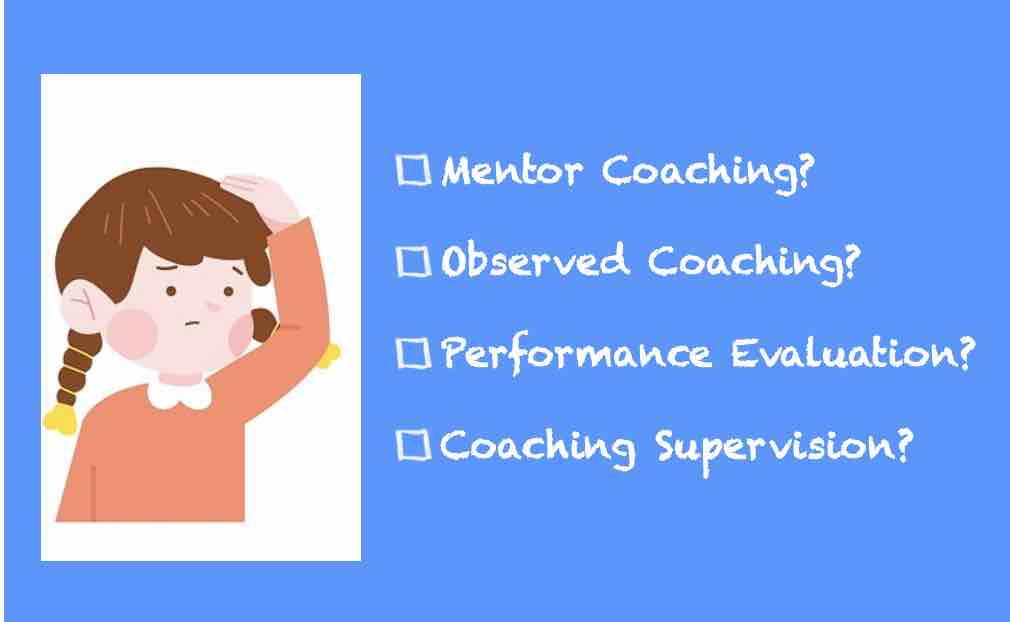
Let’s first get started with Mentor Coaching.
Mentor Coaching
Mentor coaching provides professional assistance in achieving and demonstrating the levels of coaching competency and capability demanded by the desired credential level. A coach works with a Mentor Coach in the area of their coaching skills, where mentor coaching is intended to serve as a developmental process for the coach. Mentor coaching takes place in a repetitive cycle of receiving feedback regarding a coach’s coaching skills, reflecting on this feedback and practicing new skills.
Mentor coaching means being coached on your coaching skills in preparation for certification as a coach, such as ICF Credentials. Below is taken from the ICF website:
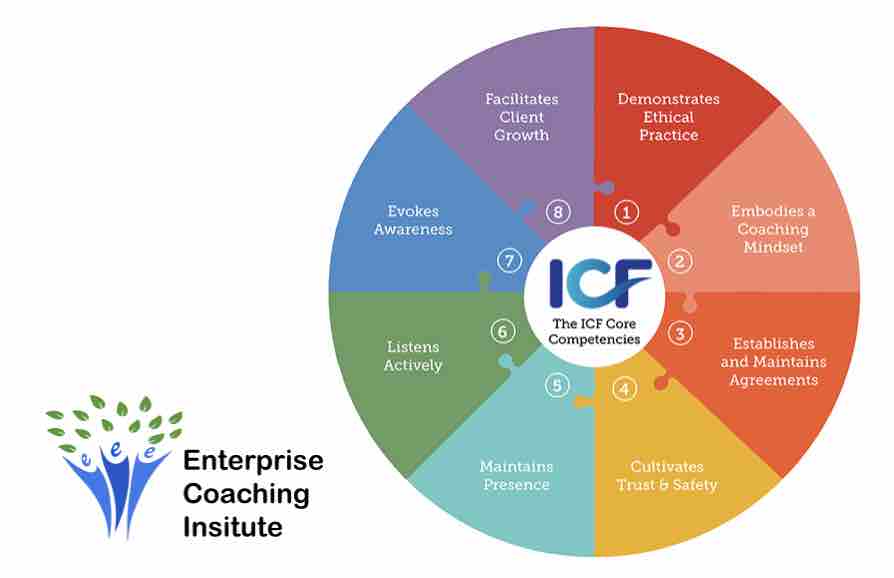
Mentor Coaching for an ICF Credential consists of coaching and feedback in a collaborative, appreciative and dialogued process to increase the coach’s capability in coaching, in alignment with the ICF Core Competencies. Mentor Coaching should take place over an extended time (three-month minimum) in a cycle that allows for listening and feedback from the Mentor Coach while also allowing reflection and practice on the part of the individual being mentored.
Mentor Coaching should take place over an extended time (three-month minimum) in a cycle that allows for listening and feedback from the Mentor Coach while also allowing reflection and practice on the part of the individual being mentored.
Only the time spent in interactive dialogue and delivery of feedback with the Mentor Coaching client may count toward the 10 hours of Mentor Coaching required for a credential. Time spent listening to a recording and preparing for a Mentor Coaching session may not be counted toward the 10-hour requirement.
Mentor Coaching Example Scenario - 1
Andy has taken different professional coaching programs, and he has enough training hours on professional coaching already to meet the training hours of ACC credentialing requirements. Andy is also required to complete 10 mentor coaching hours as part of his ACC credentialing requirements.
As many organizations offer professional coaching training, the level of learning can vary significantly. This particularly happens with a non ICF accredited training provider. Andy didn’t get so much learning into core coaching competencies, and didn’t learn to take a systematic approach to improve coaching skills. So Andy decided to join our individual one to one mentor coaching session to start with, which provides a dedicated space for Andy to get familiar with core competencies and make some improvements in his coaching skills.
Then Andy joins our Mentor Coaching Program, which is a 3-month program, including 7 group sessions, plus 3 individual sessions, with a max number of 10 participants.
As part of 7 group Mentor Coaching sessions, participants were asked to record one of their own coaching sessions (with the permission from their clients). During the mentor coaching session, together with the Mentor Coach and the other program participants. The Mentor Coach coaches Andy to identify how he is using the core competencies, and improve his coaching skills. The other program participants observe and provide additional observations of coaching skills they see in Andy’s recording. And during other sessions, Any will be observing and providing his observations on other participants’s coaching skills based on their recording.
During the individual Mentor Coaching session, there is more flexibility. Andy partners with the Mentor Coach to decide the best methods to support Andy. The Mentor Coach may play recording with Andy, and coaches Andy to reflect on his coaching skills and the core coaching competencies, for the intention of improving Andy’s coaching skills. The Mentor Coach may ask Andy to prepare for the reflection and follow the steps the Mentor Coach provides to prepare prior to the Mentor Coaching session. And during the session, they can dive into specific areas.
Mentor Coaching Example Scenario - 2
Helen took multiple coaching education programs with us, Enterprise Coaching Institute, an ICF-accredited training partner for ACC and PCC programs, sponsored by her company.
She planned her training and achieved progressive certifications. She also accumulated enough theoretical learning in coaching competencies and foundations. Helen decides to go for her ICF credential in a couple of years.
She planned her training and achieved progressive certifications. She also accumulated enough theoretical learning in coaching competencies and foundations. Helen decides to go for her ICF credential in a couple of years.

Helen has completed the required education/training hours and observed coaching sessions through our coaching education program. Now Helen has reached out for the Mentor Coaching Program. She joins our group Mentor Coaching Program, with the other participants, and completes the 7 group sessions. Through the 3 individual sessions, she works on her focused areas with the Mentor Coach.
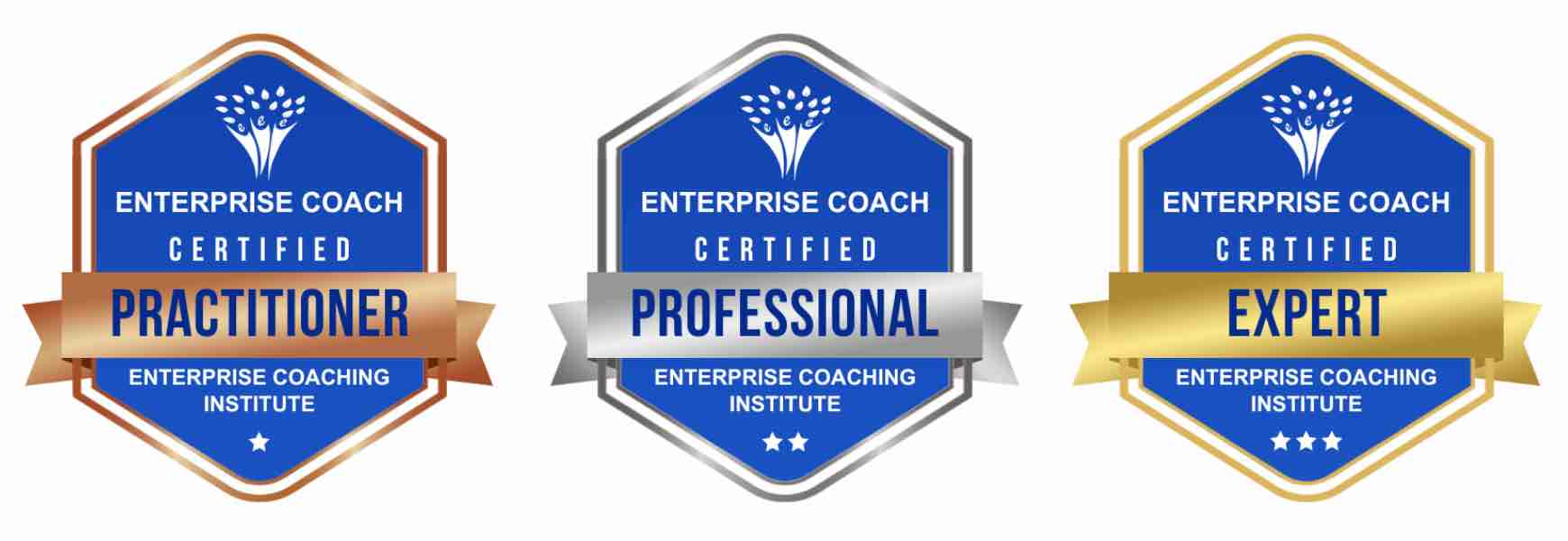
The Mentor Coaching portion is included in her registered programs while learning with us.
Mentor Coaching Example Scenario - 3
John achieved his ICF ACC credential back about two years ago. To continue improving his coaching skills and maintaining his ICF ACC credential, John starts to look for a Mentor Coaching Program in a group setting. He needs a minimum of 10 hours of Mentor Coaching to renew his ICF ACC credential.
He finds group Mentor Coaching program has its advantages for his situation:
- diverse opportunities for learning - group sessions offer opportunities for coaches to learn from each other. This is where fellow participants observe each other in action, see their own reflection and learning, and improve themselves at the same time;
- feeling of belonging - he feels that he is quite alone, by himself. He is one of the only ones who embraces coaching at his workplace. He provides different levels of services to his colleagues and teams, and his work has been appreciated by his colleagues. But John feels that he is on his own. The Group Mentor Coaching program builds a small community in a profession that can be lonely. Our buddy system helps build stronger bonding and learning among each other.
- cost-effective as this is his investment into himself.
So he joined our Group Mentor Coaching program during the 3rd year of obtaining his ICF ACC credential, he joined our group Mentor Coaching program, which enhanced his coaching, and helped him fulfill the renewal requirement for ICF ACC.
Observed Coaching
Observed Coaching should be offered to all professional coaching training program, as coaching is not about remembering theory, instead, it is about coaching in action. Observed Coaching sessions are designed to support participants to learn from coaching in action.
A participant is coaching any client, where fellow participants or another person as a method for practicing their coaching skills. These observations could be of an entire coaching session or only a part of a coaching session where the focus is on practicing one competency.
ICF does not have a minimum length requirement for observed coaching sessions. Coaching training providers should plan Observed Coaching sessions based on contents and learning, and the value of practice in action.
Observed Coaching Example Scenario
Observed Coaching Example Scenario

Alice is a participant in our accredited coaching education program. As part of our program curriculum, she is required to participate in observed coaching.
As part of the recommended program sequence, she attends observed coaching sessions.
She and another program participant practice coaching each other, either through a full coaching session, or through a partial coaching session focusing on specific coaching competencies. Our faculty member(s) observe(s) them and provide(s) written and/or verbal feedback to Alice on her coaching skills.
Performance Evaluation
Performance Evaluation only applies for ICF Level 1 and 2 accredited providers. As an accredited providers, we must administer a final performance evaluation either live or as a recording.
The final performance evaluation must, at a minimum, contain an actual observation of coaching at least one half-hour (30 minutes) to one hour in length which is graded as a final performance evaluation.
The performance evaluation is intended to be a summative assessment of coaching skills to determine readiness for credential application, by the accredited provider.
Performance Evaluation Coaching Example Scenario
Performance Evaluation Coaching Example Scenario
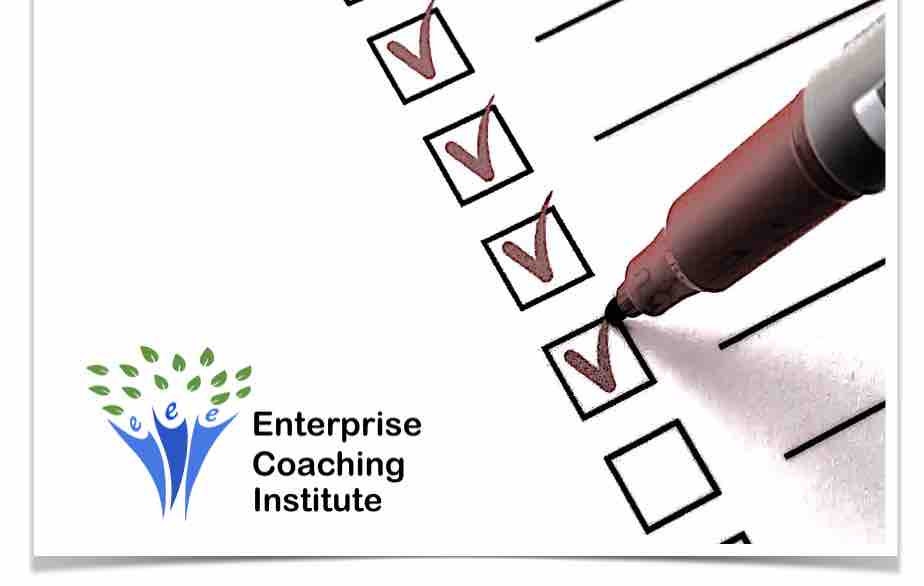
Kevin is a student who has completed the required training hours as part of our accredited coaching education program. He has joined Mentoring Coaching programs, where he has improved his coaching skills significantly. Upon completion of Mentor Coaching programs, as Mentor Coaches, we feel Kevin is ready for his performance evaluation session.
Kevin obtains permissions with his clients during his coaching sessions, and records the sessions. Kevin selects the one he likes most from fulfilling core coaching competencies. Our Certified Mentor Coaches have completed the PCC Marker Training, and one of them will review his recording. Based on the recording, our mentor coach will provides both written and oral feedback to Kevin.
If Kevin receives a passing score, he receives a certificate of completion from our institute that she can use to apply for his credential with ICF, following the simplified process (as we are an ICF accredited provider).
Coaching Supervision
Coaching is a complex and nuanced activity that challenges coaches to constantly evaluate and refine their practice.
Engaging in one-to-one coaching can often feel like navigating a solitary journey. Coaches may find themselves feeling uncertain whether they have used the right tools; Coaches may find themselves wrestling with questions whether they could have conducted the session differently; Coaches may find themselves pondering whether there were some lost opportunities in a coaching relationship; These concerns can range from the practical to the philosophical, affecting every aspect of their coaching practice.
Coaching supervision is a collaborative learning practice to continually build the capacity of the coach through reflective dialogue for the benefit of both coaches and clients. (ICF definition) At the core of continuing professional development is continual personal development. Each coaching session, each interaction with a client, each piece of feedback, can all be opportunities for new learning. This is where coaching supervision comes in.
Coaching supervision provides ‘A safe space for reflective dialogue with a practicing supervisor, supporting the supervisee’s practice, development and well-being.’ (EMCC Definition), and it is a fundamental aspect of continuing personal and professional development for coaches, providing a protected and disciplined space in which the coach can reflect on particular client situations and relationships, the reactivity and patterns, which can profoundly benefit the client, and evoke their growth in supervision.
Coaching supervision conversations may focus on core competencies, but may also focus on coaching approaches, practice building, blind spots, ethical questions, additional skill developments, life balance or other topics unrelated to the development of a participant’s coaching skill. In another word, coaching supervision helps support the balanced cycle of action, reflection, new insights, new discoveries, new understanding, new practices and continuous development.
Coaching supervision often takes place in the format of individual, which is one to one sessions, or group, which is in a group setting where coaches can learn from each other.

Coaching Supervision Example Scenario - One to One Supervision
Mike is an ACC certified coach who has been practicing for a couple of years. He works with his coaching supervisor to discuss challenges he has encountered with his clients. For instance, a recent coaching supervision session, Mike discussed how he felt stuck with one of his clients. The client seemed to be motivated about the change, but has not acted on any of her actions over the past two sessions. At during the most recent session, when Mike asked about the session outcome, the client got angry. Though Mike was able to cool down the client, and continued the coaching session, Mike felt quite disturbed and felt stuck with this client as Mike wasn’t sure how to continue working with this client, and how to work with her strong emotions during coaching sessions.
In addition, during earlier coaching supervision sessions, Mike also discusses his other challenges, questions, concerns, doubts, or worries and uncertainties related to clients. For instance, this included his choices of tools, and reflects on the impacts on the clients. He also discusses questions he has about how to improve his coaching practice, and the uncertainties he feels while he coaches his client.
Mike works with his supervisor to better understand his being as a coach, and how his being impacts how he supports his clients. How he can use the learning to reflect on his coaching practice to better his coaching skills. His coaching supervisor helps him identify coaching blind spots and set ethical boundaries with his clients which Mike had challenges with.
Coaching Supervision Example Scenario - 1
Susan is a PCC coach and has been practicing for over a decade. She had her own coaching practice for about 10 years, and a couple of years ago, she joined a group of coaches in the internal coaching group for a large corporation. She starts to experience more ethical-related topics. For instance, she brought in topics such as:
Through coaching supervision sessions, Susan reflects on who she is as a coach and learns to take a more systemic approach to supporting her clients.
- I met a new client’s supervisor in the coffee area, and the supervisor was asking about the progress of the client;
- I am coaching four clients at the same time from the same department. One of them is the team leader of the other three. Their day-to-day work intervenes quite a bit. I am finding that it is hard to hold the confidentiality of each client;
- I am coaching this new executive, and during his introduction, he mentioned that he obtained his Ph.D. in psychology at Harvard University. I have had 3 sessions with him. He seemed to be pleased at the end of each session. But I feel very uncertain about how much value I provided to him. He probably knows everything I am doing, and more at a theoretical level;
Through coaching supervision sessions, Susan reflects on who she is as a coach and learns to take a more systemic approach to supporting her clients.
Group Coaching Supervision, is a form of supervision that involves a group of coaches working together with a trained supervisor. Group coaching supervision offers a space and a platform for all coaches to reflect on their coaching practices, learn from each other, and receive feedback and support from the supervisor and fellow coaches. It supports peer learning and is certainly cost-effective. Some of our supervision clients join one-to-one sessions during certain periods of our engagements and may join later a group coaching supervision program.
So the question for you to ponder is - how can you benefit from coaching supervision?
Empty space, drag to resize
The Author of this blog, Evelyn Tian, is an Advanced Certified Mentor Coach (ACMC), Professional Certified Coach (PCC), Certified Coach Supervisor, Certified Team Coach and Certified Enterprise Coach.. She is also a Certified Performance Coach, and Certified Master Coach with focuses on behavioral-based coaching.
She has been mentoring agile coaches and professional coaches since 2011, and some of her mentees are current active ACC, PCC, Certified Enterprise Coach (CEC), and Certified Team Coach (CTC) holders. As of Nov 2023, she has supported practitioners from 80 countries.
She co-founded Enterprise Coaching Institute, ECI, an ICF-accredited training provider, offering ICF ACC and PCC level programs.
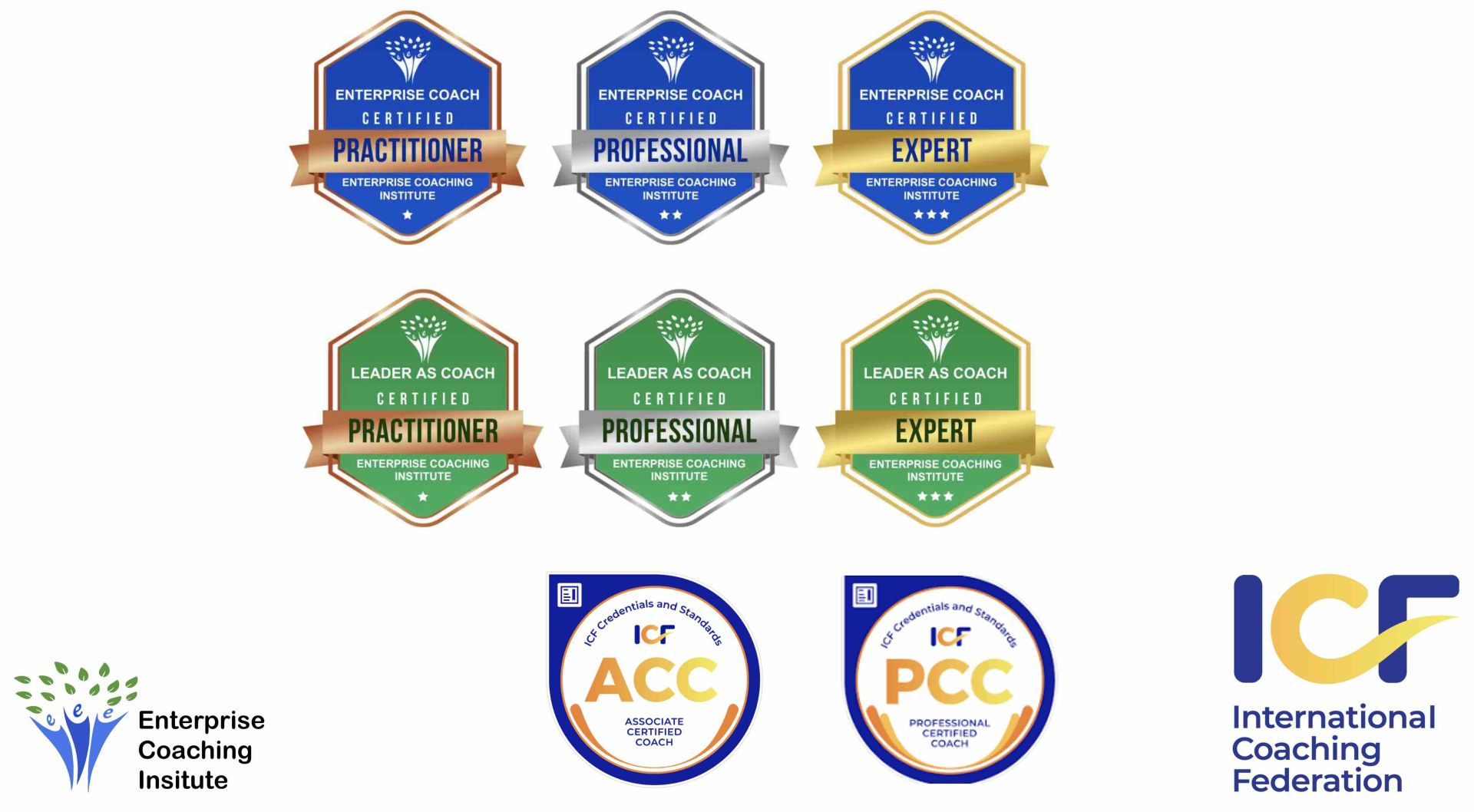
Write your awesome label here.
Join our community
Thank you!
We have supported practitioners from 80 countries, and have monthly free activities for our community members.
You can bring any topics to our activities, or just get ready to network.
You can bring any topics to our activities, or just get ready to network.
Who we are
We are the training, coaching and consulting company that offer all your growth needs.
Get in touch
-
Evelyn Konsult AB
Stockholm, Sweden -
training@evelynkonsult.se
-
+46708883268
-
Affiliate Program
Copyright © 2026
Sign up to our newsletter!
Thank you!
Write your awesome label here.

